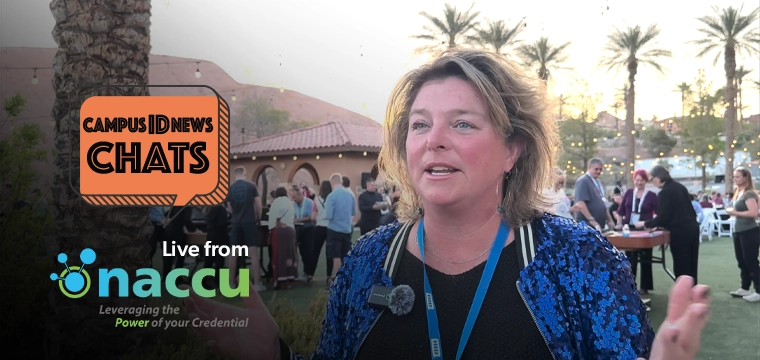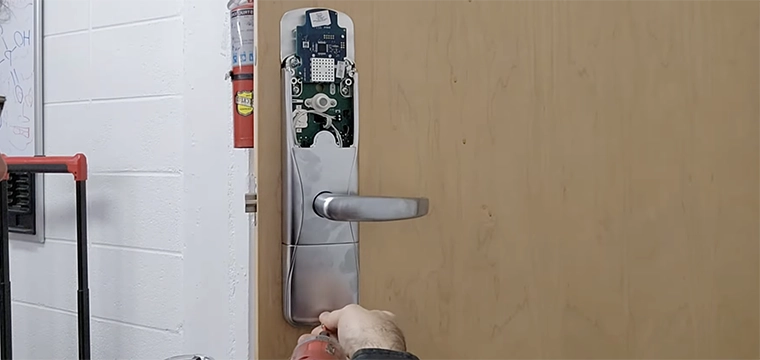Keeping children safe is priority for parents, law enforcement agencies, day care centers, preschools, and other childcare providers. Even in one of the safest cities in the U.S., Camarillo, California, the police department has a crime prevention unit that is dedicated to teaching residents how they can protect their little ones and be prepared should an emergency occur. Together with a volunteer citizen group, the unit offers parents in the Ventura county city of 63,000 a unique high tech safety program called KidPrint, made possible in part by Zebra’s Eltron Card Printers.
Yvonne Wooff, Senior Deputy in charge of crime prevention with the Camarillo Police Department, initiated the successful KidPrint program in June 2001. Armed with an Eltron printer, a laptop computer, a video camera, and fingerprint capture device, Wooff and a group of citizen volunteers attend family-oriented events in Camarillo and create durable plastic identification cards for kids. Complete with the child’s photo, thumbprint, height, weight, date of birth, and other vital information, the cards are credit card-sized, making them easy to fit into a wallet or purse so parents can carry them at all times.
“The benefits of the plastic ID cards for parents and law enforcement are enormous,” said Wooff. “In the event that a child gets lost or becomes missing, the parents will have a document containing all of the child’s vital information, allowing them to immediately provide law enforcement officials with the key facts needed to start a search. The card also provides documentation of the child’s right thumbprint should it ever be necessary to identify the child.” Wooff recommends parents update the cards yearly for children two and over. For infants and toddlers up to two years old whose appearance changes rapidly as they grow, she recommends having a new card made every six months.
Funded by a Law Enforcement Technologies grant, the KidPrint program is a high tech solution to what used to be a painstaking, low-tech process. Prior to the state funding, the program was paper-based and the police fingerprinted kids manually. Vital information was recorded on 8X8 paper cards, which were not convenient to carry or durable enough to withstand time in a purse or wallet. The KidPrint program changed all that. Developed with the help of Card Integrators, a company based in Los Alamitos, California, specializing in card printing solutions for a variety of businesses, the KidPrint program consists of specialized card making software, Zebra’s Eltron P420 dual-sided card printer, a JVC video camera, a Halopass fingerprint capture device, and a Dell laptop computer. In addition, the department brings along a medical scale to make sure the children’s weight and height measurements are accurate. The portable system is easy to transport and takes as little as 20 minutes to set on location. All that’s needed is electricity and volunteers who are willing to spend an afternoon helping parents and their kids.
Taking children’s attention spans into account, the process for making a KidPrint ID is fast. Upon arriving at the KidPrint booth, volunteers help the parents fill out the forms. Another volunteer measures and weighs the child. Next, all data is entered into the computer system while the child sits in a chair for the video camera to capture his/her image which instantly feeds into the specially designed card software. Next up: the thumbprint. Instead of an inkpad, kids place their thumbs on the glass thumbprint video capture device—the image is also directly input into the card software. Once all vital data has been input, a simple press of the print “button” activates the printer. In less than a minute a dual-sided color card is complete and ready to slip into a pleased parent’s wallet.
The program’s backbone is the Zebra Eltron P420 printer. With a capacity to produce more than one hundred cards per hour, the industrial strength, feature-rich desktop printer is easily moved to events, quickly set up, rugged enough to endure transportation and the outdoors, and low-maintenance, making it the ideal solution for KidPrint. The volunteers enjoy the P420 printer’s simple operational features such as automatic ribbon synchronization that eliminates the need for operator intervention, and the easy to change card-cleaning cartridge, which thoroughly removes dust from cards before they are printed. The product’s metal enclosure features a window to view the printing process without opening the unit, and its transparent card input hopper provides visual card capacity status.
Once the data is input into the computer to make the card, it remains in the Camarillo Police Department’s system, providing yet another benefit: if a child is lost, within minutes, police can access the digital data, including the child’s photograph and thumbprint, and create missing person flyers to blanket the area.
“If we need to conduct a search for a lost or missing child, we can print up flyers without relying on a distraught parent to provide an accurate description or photo,” said Wooff.
Since its inception last summer, the KidPrint program has made more than 500 cards at more than six different local events such as Children’s Day in the Park, the Camarillo Fiesta, Blood Drives, etc. The six person volunteer group handles between 50 to 100 kids per event. “The positive response has been overwhelming. I’ve had tons of mom’s groups, preschools, and YMCAs come out to do it. Right now we can’t fill all our requests because it would require a full time staff,” said Wooff. “In fact, many of the police department employees have had their kids done. The police officers also see the value of the program. That is a great endorsement.” Another endorsement is the fact that neighboring police departments and a nearby U.S. naval base now want to institute a similar program.
“In Ventura County, we are the first police department to offer a program like KidPrint,” said Wooff. “We are proud to offer this service to the community to help keep our kids safe.”
“I’ve had the opportunity to observe our KidPrint program and its positive reception by our community,” said Mike Morgan, Mayor of Camarillo. “Recordation of our children’s fingerprints could prove valuable in locating a lost or stolen child. Our City Council is very supportive of this effort.”
Parents in the area are supportive as well, knowing that because of KidPrint they are prepared in the event of an emergency.
“I think it’s a fantastic program, and my kids were really excited to get it done,” said Michelynn Murphy, a mother whose kids ages eleven and twelve both have KidPrint cards. “I had something like this done years ago on paper cards, and I filed them away in a file cabinet. The plastic KidPrint card is great because it’s accessible, and it’s something I can carry with me at all times. It’s terrible to think about something happening to my kids, but it’s great to know that in an emergency, I am prepared. I only wish the program was more widespread so more parents and kids could enjoy the benefits of KidPrint.”




